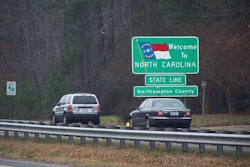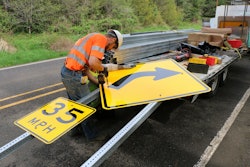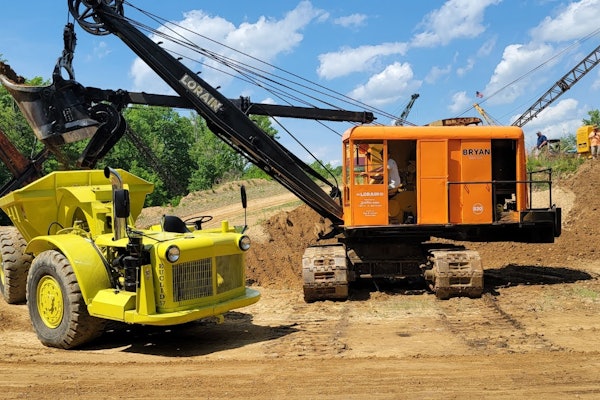 U.S. Navy Sailors from the Naval Mobile Construction Battalion 22 spray sand and gravel with water and compress it with a roller during a road construction project May 2 at Chebelley, Djibouti. The one-mile construction project took approximately two months to complete. (U.S. Air Force photo by Staff Sgt. Eric Summers Jr.)
U.S. Navy Sailors from the Naval Mobile Construction Battalion 22 spray sand and gravel with water and compress it with a roller during a road construction project May 2 at Chebelley, Djibouti. The one-mile construction project took approximately two months to complete. (U.S. Air Force photo by Staff Sgt. Eric Summers Jr.)The United States Navy is doing its part to improve road conditions abroad.
According to a report by the Combined Joint Task Force – Horn of Africa, U.S. Sailors from the Naval Mobile Construction Battalion 22 (Seabees) completed a road construction project in Chebelley, Djibouti on May 2.
A mile-long gravel road was put in place to provide a safer route for civilians and the more than 300 military members who use the road every day.
“Chebelley road was in pretty bad shape when we got here,” Petty Officer 1st Class Toledo Emanuel, Naval Mobile Construction Battalion 22 equipment operator and project supervisor, says in the report. “We are just making it safe for the people who drive here. It’s a lot of movement on this road, so we are fixing the grade of it.”
The road contained numerous potholes, large rocks, and other obstacles that made driving difficult. During the two-month project, the battalion placed approximately 32 cubic meters of a gravel and sand mix along the 800-foot stretch of road, watered it in, and compacted it to three-quarters of an inch thick.
The process took approximately two hours and was repeated multiple times per day during the eight- to 10-hour workdays.
Emmanuel said, because of the noisy, traffic congested and hot environment, safety was a big concern, so cones and traffic signals were set up, and plenty of water was provided to keep the workers hydrated.
The project ended near the Chebelley gate and, with regular maintenance, is expected to last at least a year.









